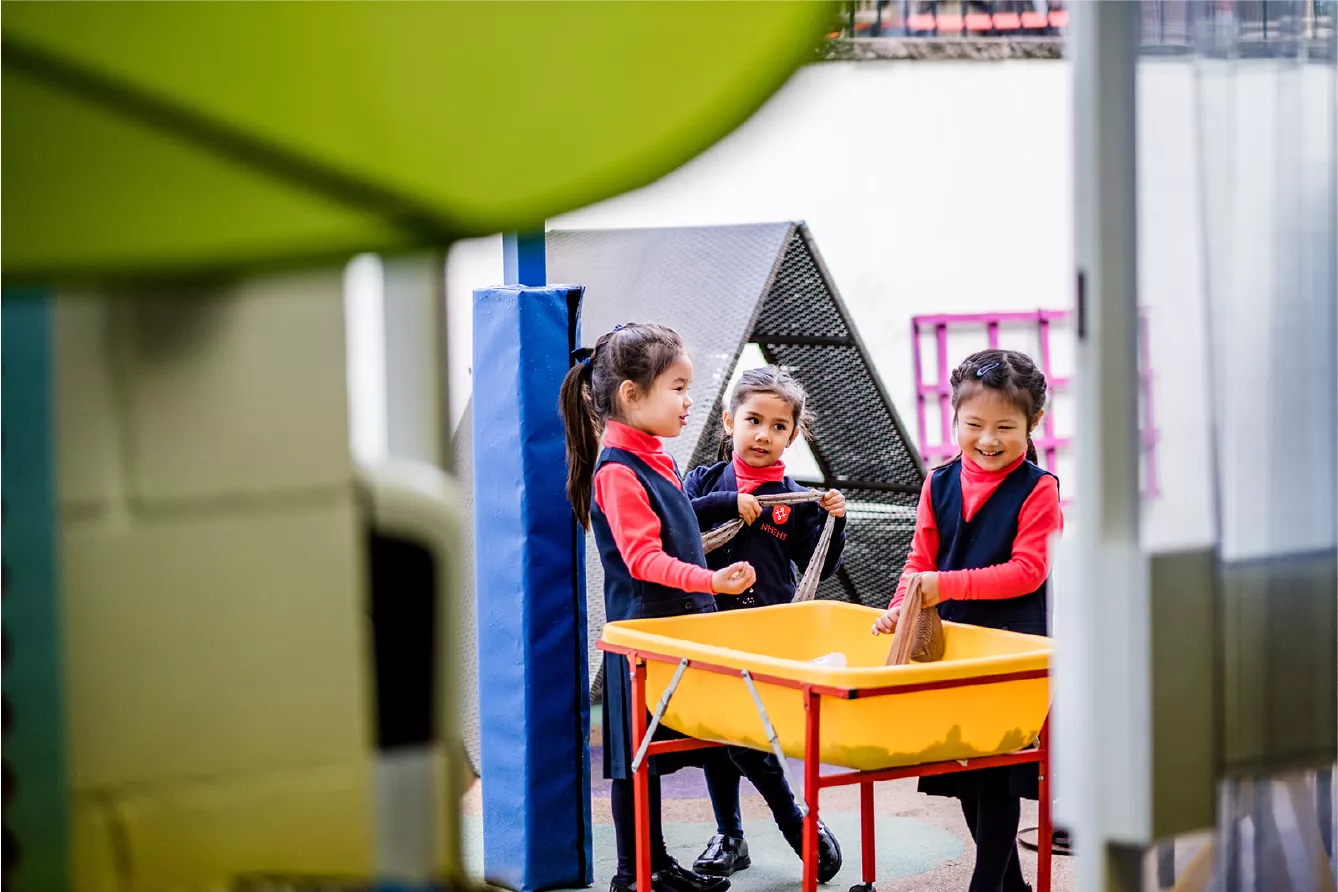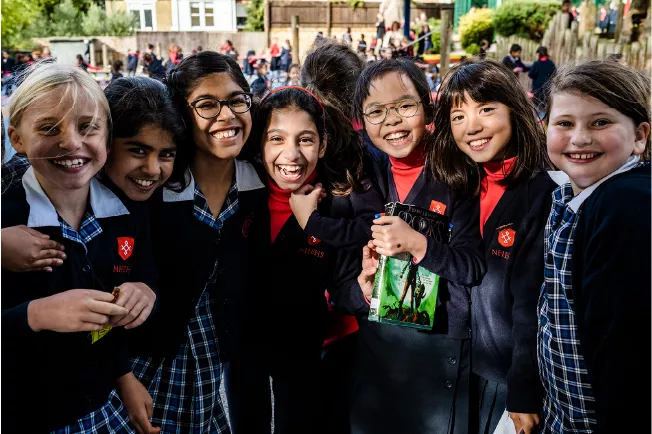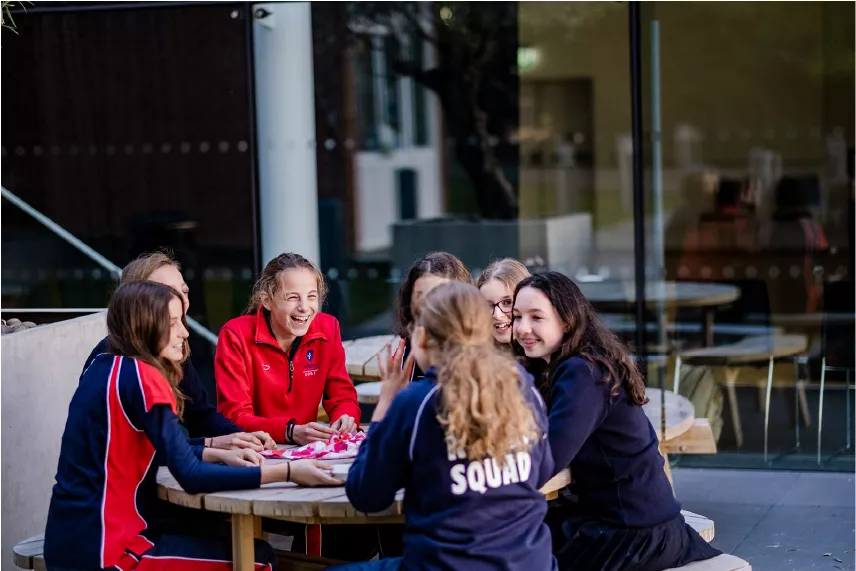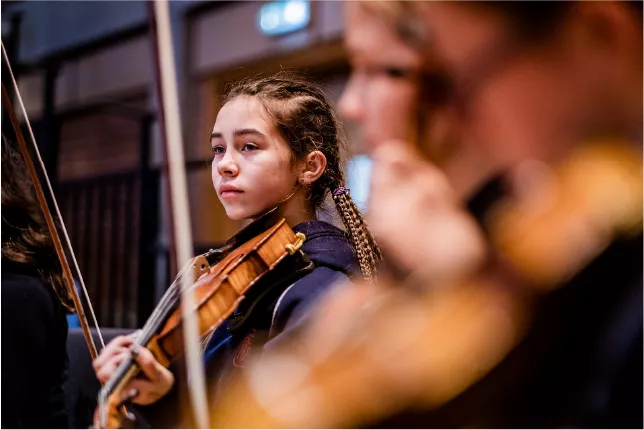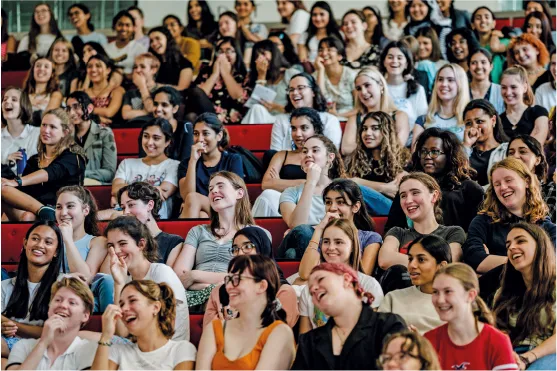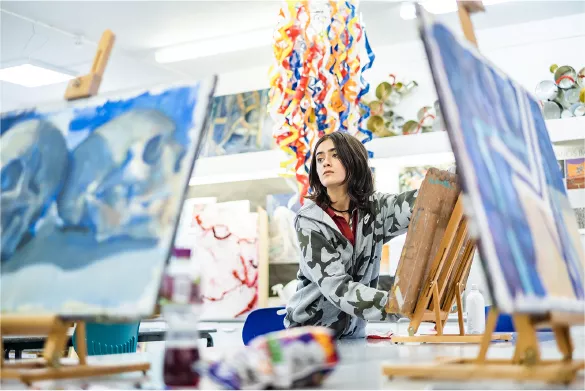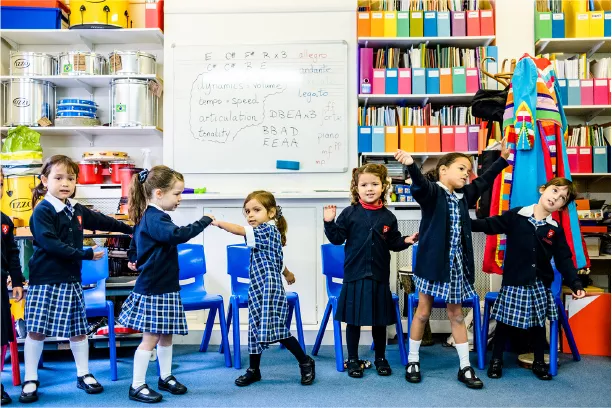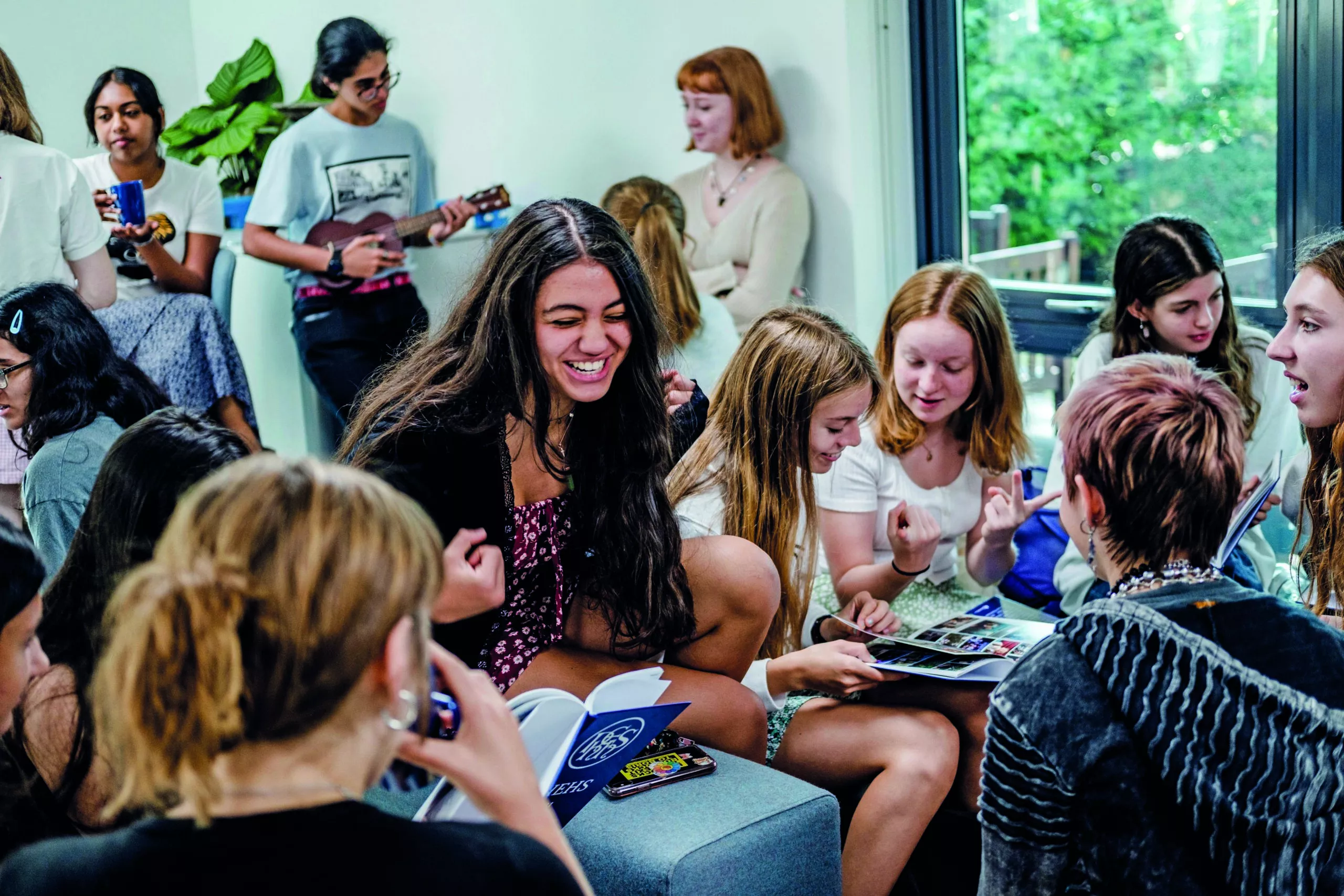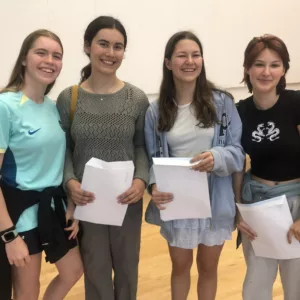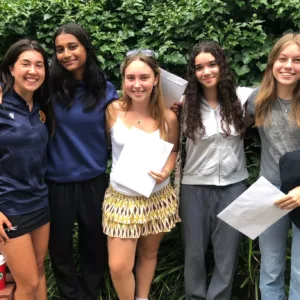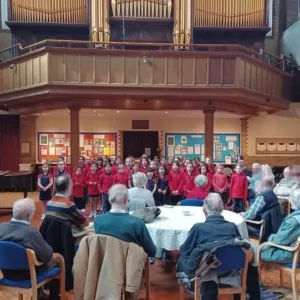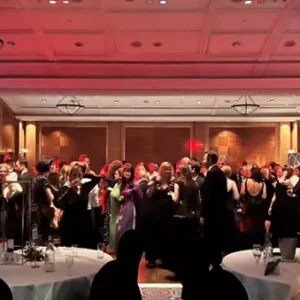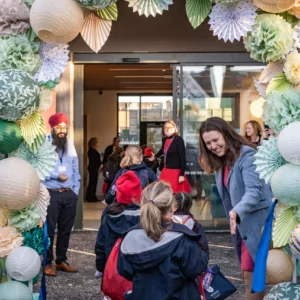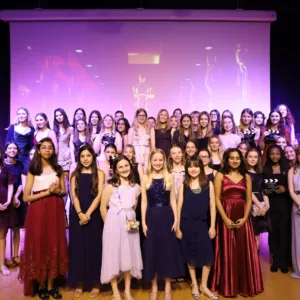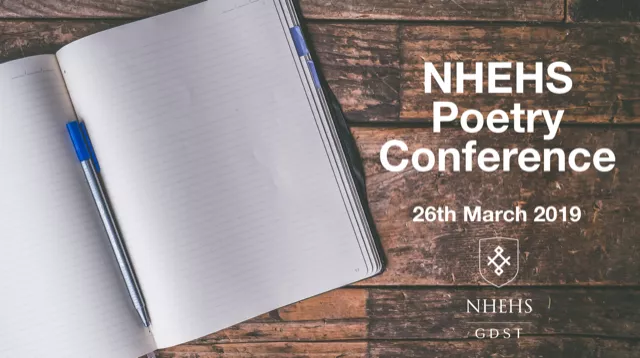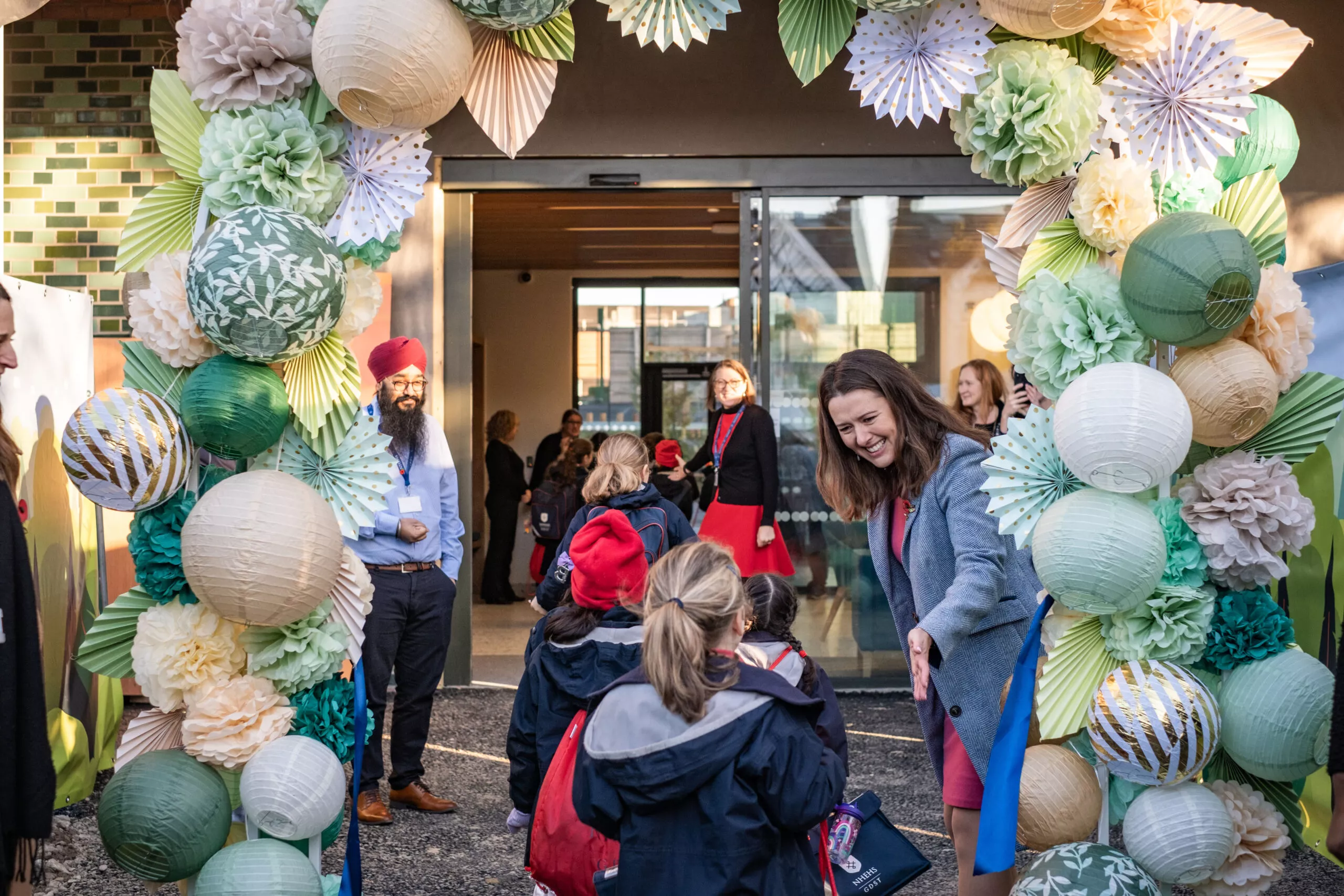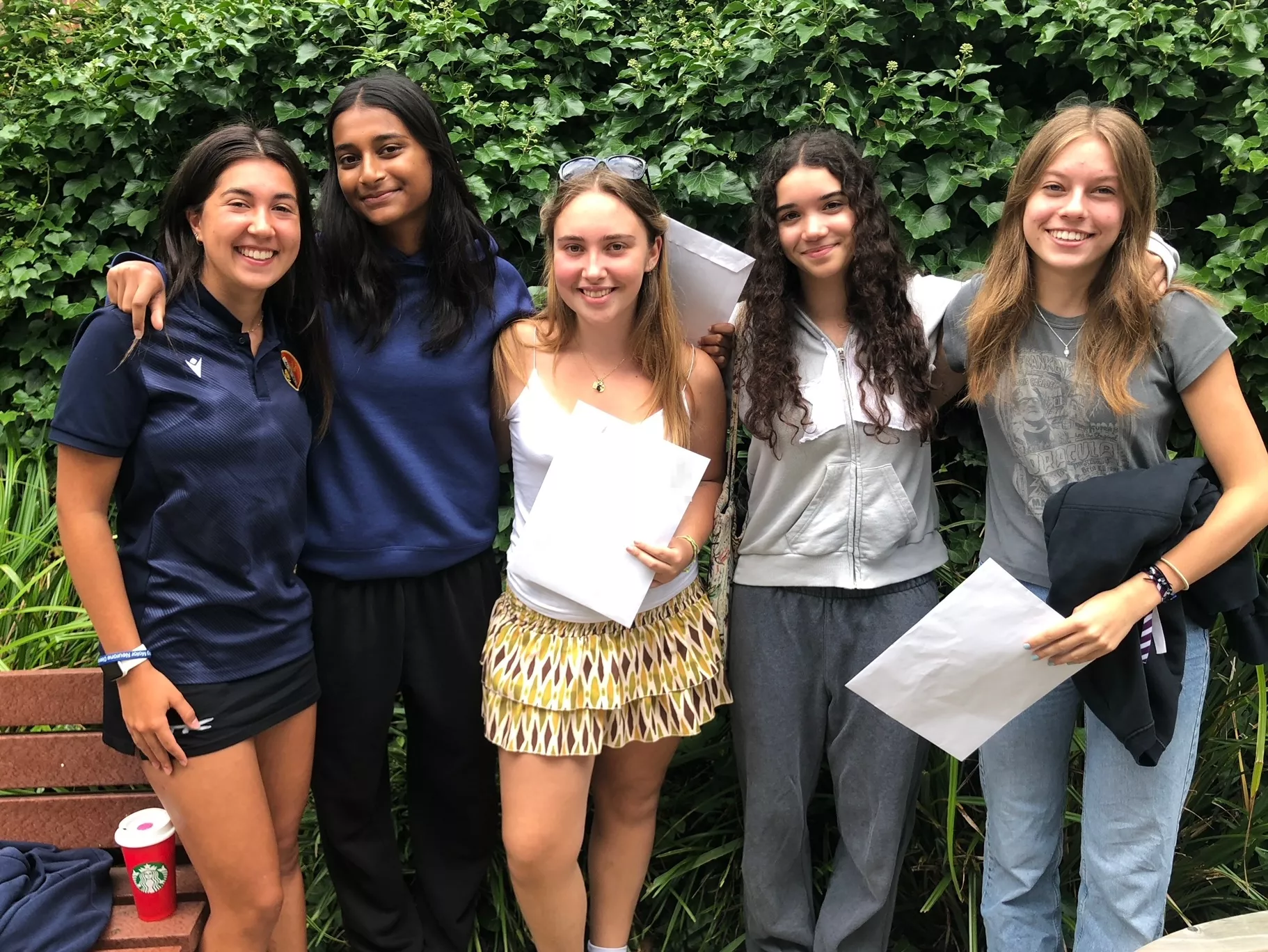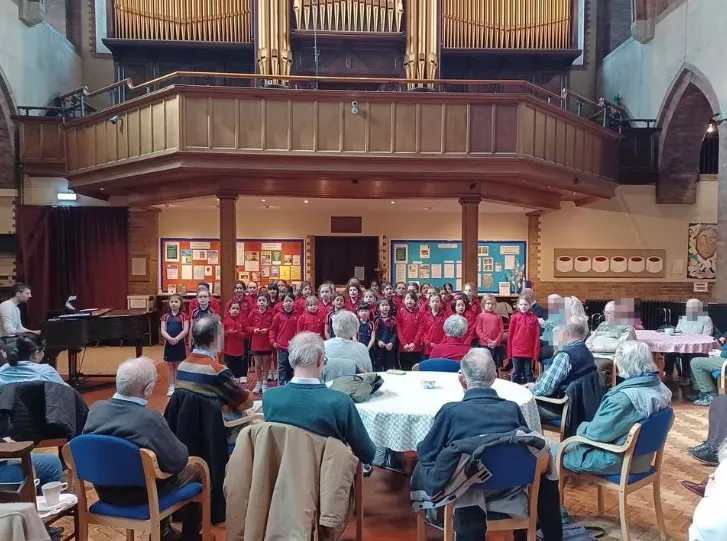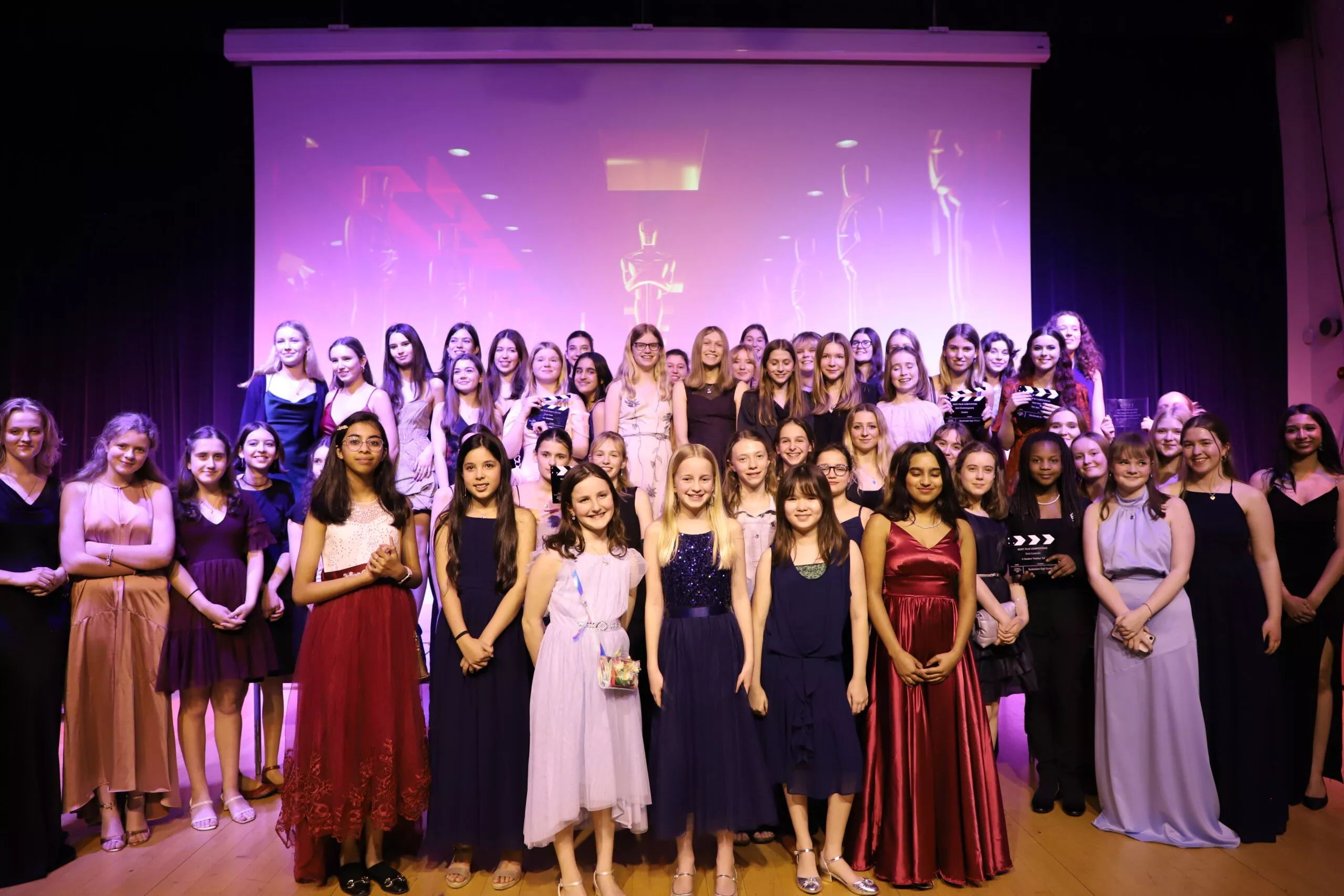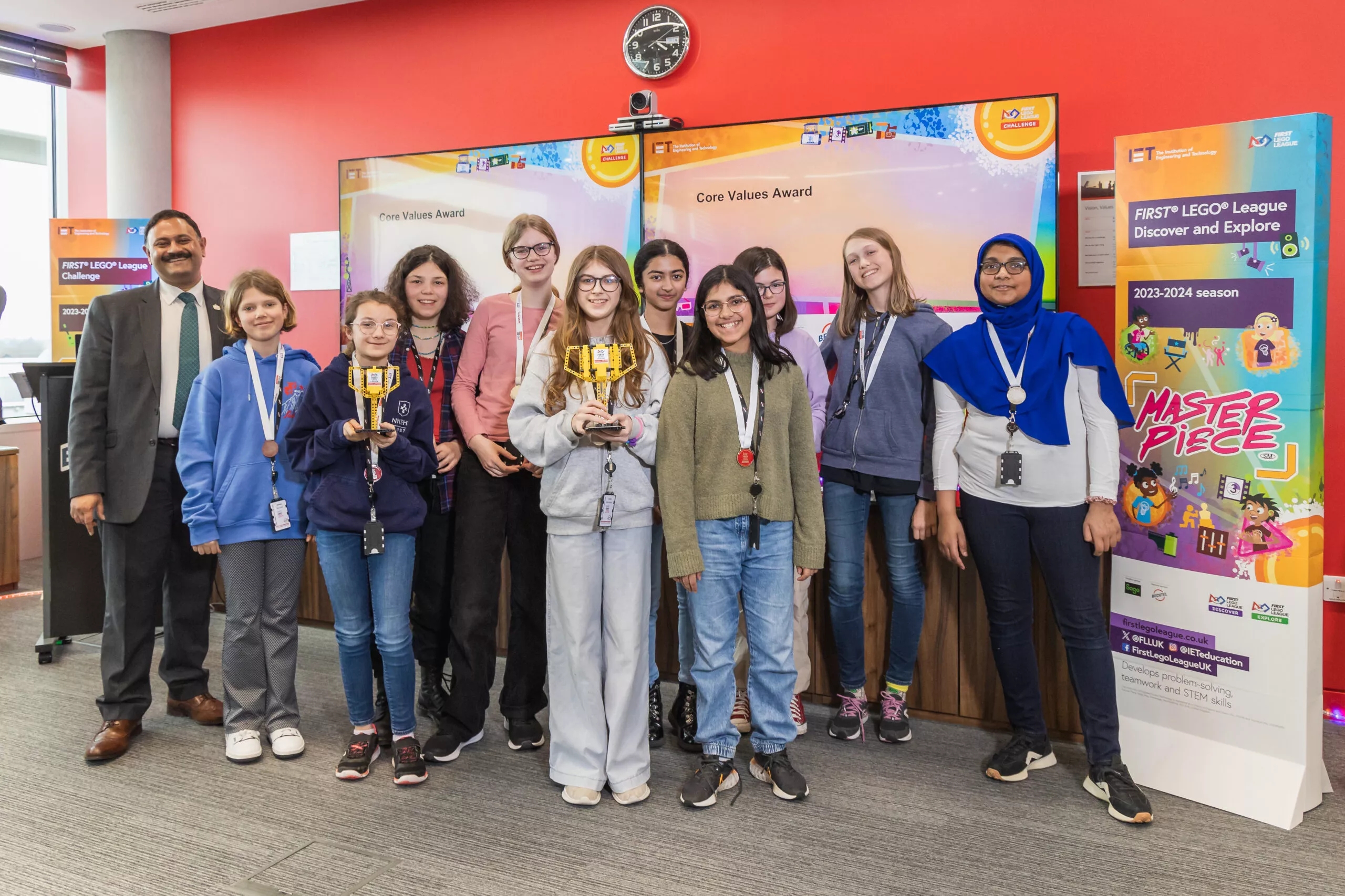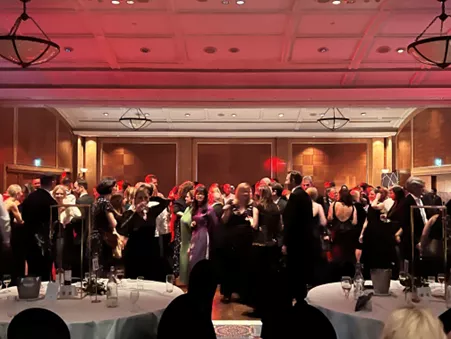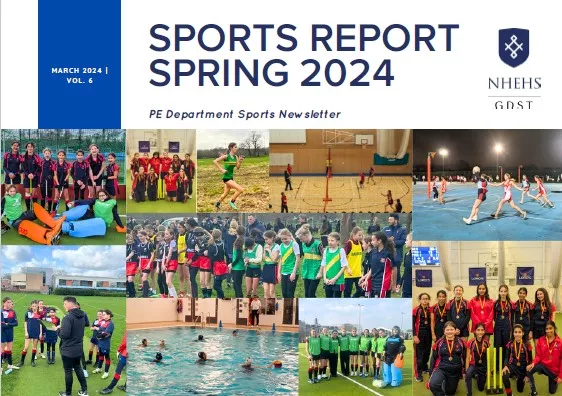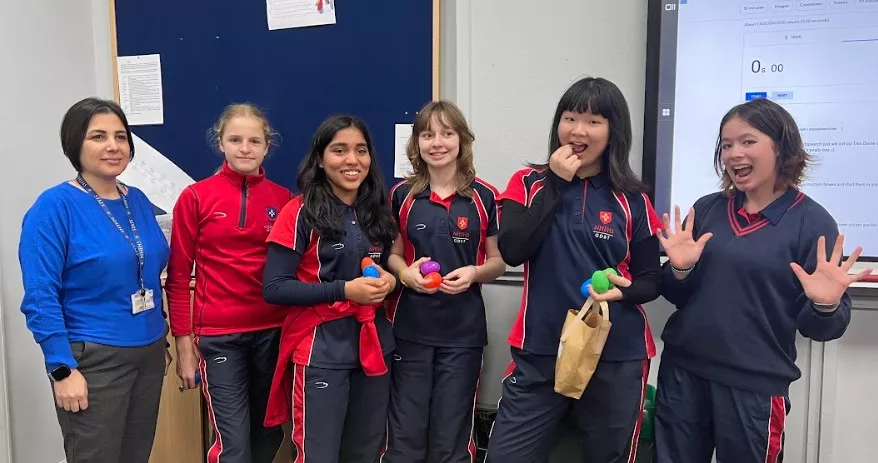Year 10 Journalists Interview Daljit Nagra & Professor Mark Ford at NHEHS Poetry Conference
By Li An Tan and Isabel Hepburne-Scott, Year 10 Journalist Leaders
On Tuesday 26th of March, NHEHS had the privilege of hosting our very first GCSE Poetry Conference. Students from Elthorne Park High School and Brentside High School visited for the conference. We had two speakers: the internationally renowned poet Daljit Nagra, and the award-winning poet, writer and literary critic Professor Mark Ford.
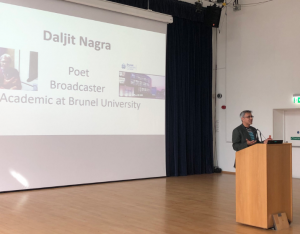 First, we heard from Daljit Nagra, a British poet whose poems explore the lives of second generation Indian immigrants. Nagra’s poems are often written from the perspective of someone with an Indian accent (written phonetically) whose first language was not English.
First, we heard from Daljit Nagra, a British poet whose poems explore the lives of second generation Indian immigrants. Nagra’s poems are often written from the perspective of someone with an Indian accent (written phonetically) whose first language was not English.
Daljit talked to us about the importance of reading poems for fun, as opposed to reading poems for purely analytical reasons. He talked of his love for poems and how they can transport you to another world. We then had a go at writing some of our own poems.
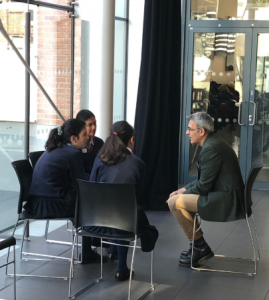 Afterwards, we were lucky enough to have the opportunity to ask Daljit a few questions:
Afterwards, we were lucky enough to have the opportunity to ask Daljit a few questions:
Are there any poems or poets that have particularly inspired you?
William Blake really inspired me. I read his poems at the age of nineteen or twenty. I loved how his poems seemed simple on the surface but the more you read them, the more you find out. I also enjoyed reading the epic poem “Paradise Lost” by John Milton.
Did you enjoy studying English at school?
I have always enjoyed English lessons, despite not going to a very good school. I didn’t feel as though I was being pushed, for example, at GCSE’s our teacher read us three short stories by Roald Dahl. It wasn’t hard or challenging, but I did enjoy the subject.
Why do you think creative writing is important in schools?
I think creative writing is extremely important as it is different from all the analysis done in other subjects. We are constantly analysing and judging the world around us, so it is important to do something different. It is about looking closely at senses, enriching the world through poetry. Imagination shouldn’t be judged. You wouldn’t go to your friend and say, “that conversation deserved 4 out of 10”. That is because we need to allow ourselves to be creative, and not just analyse.
Do poets actually intend to use technical terminology?
No, poets don’t really think about the techniques they are using. We focus more on how we can create a world and invite the reader into that world, less so about the terminology used.
What advice would you give to an aspiring poet?
I would tell them to enjoy writing, and not to think of it as a competition. It should really be a hobby, a conversation with your imagination. I used to read poems a lot for fun. I would buy poetry books like people buy records and albums. Don’t think about the analysis. I didn’t intend for my poems to be published at first. I was just writing for my own enjoyment. And since I started writing, I have never found myself to be bored as I like to come up with lines of poetry when I have the time.
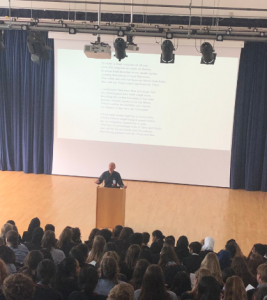 Our second speaker, Mark Ford, took us through the analysis of three poems (“The Fair Singer”, “The Solitary Reaper” and “The Day Lady Died”), all of which were written by male poets about female singers, though they all differed vastly. Ford got us to recognise all the words related to one particular topic for each of the poems in order to enhance our understanding of them.
Our second speaker, Mark Ford, took us through the analysis of three poems (“The Fair Singer”, “The Solitary Reaper” and “The Day Lady Died”), all of which were written by male poets about female singers, though they all differed vastly. Ford got us to recognise all the words related to one particular topic for each of the poems in order to enhance our understanding of them.
He too was able to answer a few of our questions:
Are there any poems or poets that have particularly inspired you?
I read the poem “Ode to a Nightingale” by John Keats at the age of sixteen which I particularly enjoyed. Our peak receptivity for poetry is between the ages of fourteen and twenty, so I would highly recommend reading “Ode to a Nightingale”.
Do you prefer analysing or writing poetry?
They are two very different things. Writing poems is like rock climbing; it’s exciting but also scary. Whereas analysing is like climbing a hill; you’re just plodding along. In both cases however, writing is a very personal experience.
Do you write poetry thinking about its analysis?
I don’t think about the analysis of terminology whilst writing. It’s more about filtering the possibilities of words to choose from. It is about searching for the perfect word or phrase, not about its analysis. It’s hell actually!
Why do you choose to write mostly about poetry?
I have also written about novels in the past, however there is so much more going on in poetry. It’s exciting, quick, compressed. In a sense I think that poetry needs comment far more than fiction because poetry is harder to make sense of. The need for analysis, therefore, is far greater.
Thank you to both Daljit Nagra and Mark Ford for such interesting insights and a wonderful morning. We enjoyed it very much!
Back to news
